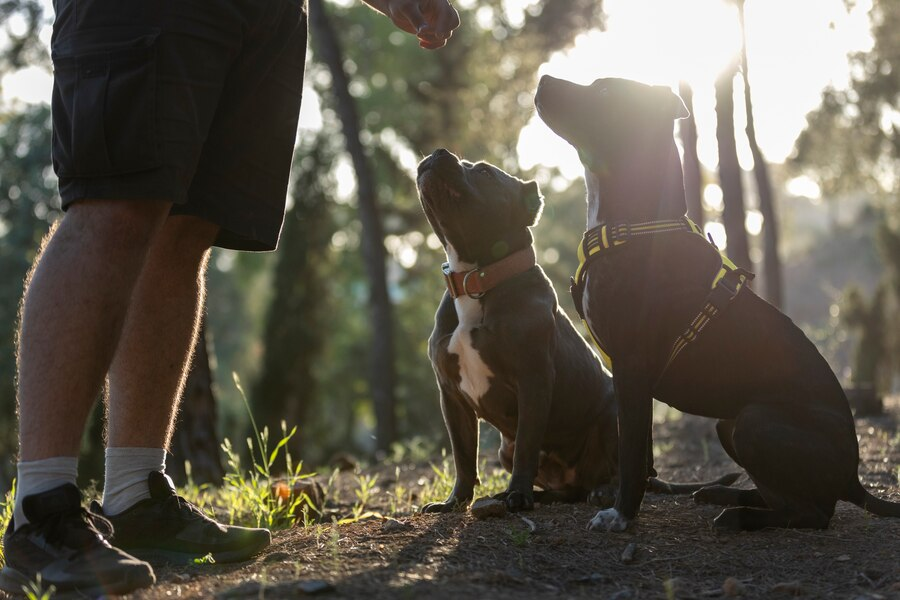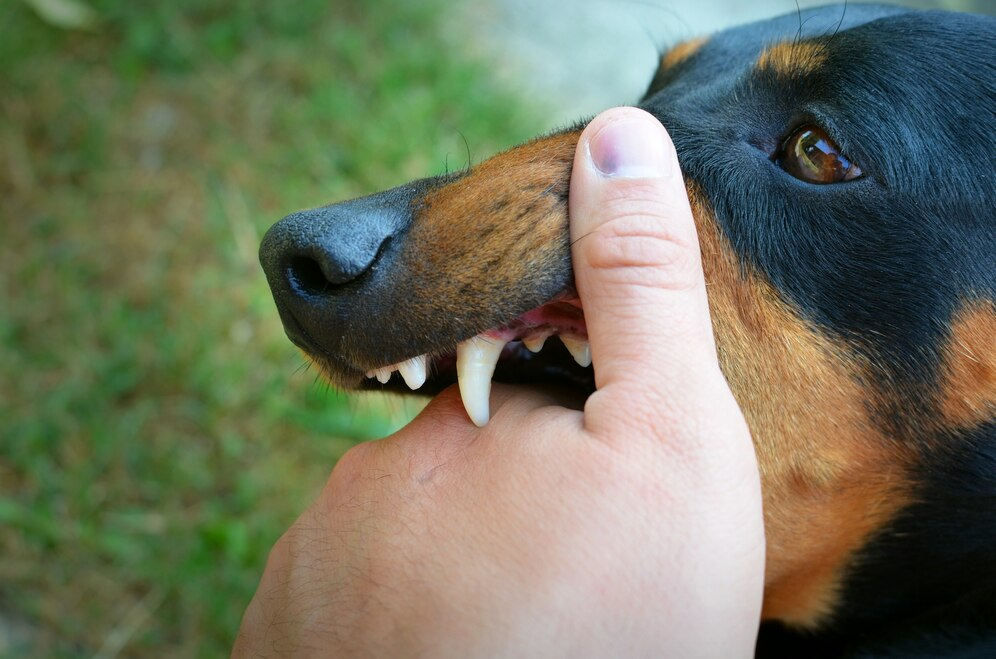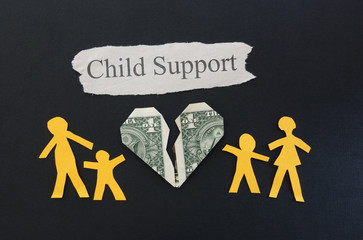Michigan has specific laws in place regarding dog bites, focusing on protecting citizens and holding dog owners accountable. These laws are vital for anyone who owns a dog or interacts with dogs in Michigan. Understanding the dog bite law in Michigan, especially regarding owner liability and the potential for euthanasia of a dog following an incident, is crucial for responsible pet ownership and community safety.
Understanding Michigan’s Dog Bite Law
Michigan operates under a “strict liability” dog bite statute. This means that a dog owner is legally responsible if their dog bites someone, regardless of whether the owner knew the dog had the tendency to bite. This law applies if the person bitten was on public property or lawfully on private property, including the property of the dog owner.
Strict Liability
Michigan’s dog bite law imposes strict liability on dog owners for any damages resulting from a dog bite inflicted on a person without provocation. This means that the owner is held responsible for the actions of their dog, regardless of the circumstances leading to the bite.
- Legal Responsibility: Dog owners are legally responsible for all damages resulting from a dog bite, including medical expenses, lost wages, pain and suffering, and other related damages. This principle ensures that victims receive appropriate compensation for their injuries.
- No Requirement of Prior Knowledge: Unlike in some states where liability depends on whether the owner knew or should have known about the dog’s dangerous tendencies, Michigan’s strict liability statute holds owners accountable regardless of their knowledge of the dog’s behavior. This provision helps protect victims by placing the burden of responsibility squarely on the dog owner.
Legal Standing
For a victim to have legal standing under Michigan’s dog bite law, certain criteria must be met:
- Absence of Provocation: The victim must not have provoked the dog in any way leading up to the bite. Provocation may include actions such as teasing, hitting, or threatening the dog. This requirement helps ensure that the victim’s behavior did not contribute to the incident.
- Lawful Presence: The victim must have been legally allowed to be where the bite occurred. This includes being on public property or lawfully on private property, such as the property of the dog owner or with the owner’s permission. By limiting legal standing to situations where the victim was lawfully present, the law prevents frivolous claims and protects property owners from undue liability.
Preventing Dog Bites
While Michigan’s dog bite law provides important protections for victims, prevention remains the best approach to mitigating the risk of dog bites. Dog owners can take proactive measures to ensure that their pets do not pose a danger to others:
- Socialization and Training: Properly socializing and training dogs from a young age can help prevent aggressive behavior and reduce the risk of bites.
- Supervision and Restraint: Owners should supervise their dogs when in public and use leashes or other forms of restraint to prevent them from approaching strangers or other dogs unexpectedly.
- Education and Awareness: Raising awareness about responsible pet ownership and the importance of understanding dog behavior can help prevent misunderstandings and reduce the likelihood of dog bites.
Legal Consequences and Owner Liability
When a dog bites someone in Michigan, the owner faces several possible legal consequences. These can range from fines and penalties to, in severe cases, the euthanasia of the dog. Legal consequences often depend on the circumstances of the bite and the history of the dog involved.
Civil Liability
One significant consequence that dog owners in Michigan face is civil liability. This means that if someone is bitten by a dog, they have the right to pursue compensation for damages through a civil lawsuit. These damages can include medical expenses, lost wages, pain and suffering, and other related costs incurred as a result of the dog bite.
- Damages: Dog owners may be held responsible for various damages incurred by the victim, including medical bills, rehabilitation costs, and lost wages due to inability to work.
- Negligence: Owners can be found negligent if they failed to take reasonable precautions to prevent the dog from biting someone, such as not properly restraining the dog or ignoring warning signs of aggression.
Criminal Charges
In cases where the dog was known to be dangerous or had a history of aggression, the owner may face criminal charges in addition to civil liability. Criminal charges can result in fines, penalties, or even imprisonment, depending on the severity of the incident and the owner’s culpability.
- Dangerous Dog Statute: Michigan has specific statutes regarding dangerous dogs, and owners can be charged under these laws if their dog has previously been deemed dangerous or if they knowingly allowed a dangerous dog to harm someone.
- Criminal Negligence: If it can be proven that the owner acted recklessly or with criminal negligence in allowing the dog to bite someone, they may face criminal charges under Michigan law.
Euthanasia Considerations
In severe cases where a dog is deemed to pose a significant threat to public safety, euthanasia may be considered as a legal option. This decision is typically made by animal control authorities or a court of law after assessing the circumstances surrounding the bite incident and the dog’s history of aggression.
- Public Safety: The primary consideration in cases involving euthanasia is the safety of the public. If a dog is deemed too dangerous to be safely managed or rehabilitated, euthanasia may be considered the most appropriate course of action.
- Behavioral Assessment: Before making a decision regarding euthanasia, authorities may conduct a behavioral assessment of the dog to determine its temperament and likelihood of future aggression.
- Owner Responsibility: Dog owners are ultimately responsible for their pet’s behavior, and if a dog is deemed a significant threat to public safety, the owner may face legal consequences, including the possibility of euthanasia for the dog.
Dog Bite Prevention Tips

Preventing dog bites is essential for the safety of both the community and pets. Here are several tips dog owners can implement:
Training
Proper training is essential for all dogs, regardless of their breed or size. Training should begin from an early age to instill good behavior and socialization skills. Here are some key training tips:
- Obedience Training: Teach your dog basic commands such as sit, stay, and come, to help control their behavior in various situations. Consistent training and reinforcement are crucial for reinforcing these commands.
- Socialization: Expose your dog to different people, animals, and environments to prevent fear and aggression towards unfamiliar stimuli. Gradually introduce your dog to new experiences and provide positive reinforcement for calm and appropriate behavior.
- Behavior Modification: Work with a professional dog trainer or behaviorist if your dog exhibits aggressive or fearful behavior. Behavior modification techniques can help address underlying issues and improve your dog’s response to various situations.
Restraint
Proper restraint of dogs is essential, especially in public spaces where encounters with strangers and other animals are common. Here are some measures dog owners can take to ensure their dog is properly restrained:
- Leash Use: Always use a leash when walking your dog in public areas to maintain control and prevent them from approaching strangers or other dogs unexpectedly. Choose a sturdy leash that is appropriate for your dog’s size and strength.
- Secure Fencing: Ensure your home has secure fencing to prevent your dog from escaping and potentially harming others or being harmed themselves. Regularly inspect and maintain fences to address any damage or weaknesses that could compromise their effectiveness.
Warning Signs
It’s essential for dog owners to communicate any potential risks associated with their dog’s behavior to others. Posting signs can help alert strangers and other dog owners to exercise caution when approaching your dog. Here are some warning signs to consider:
- Aggression: If your dog has a history of aggression towards strangers or other dogs, it’s important to communicate this through signage to prevent potential conflicts. Provide clear instructions for how others should interact with your dog to minimize the risk of aggression.
- Fearfulness: Dogs that are fearful or anxious may react defensively if they feel threatened. Signs can help others understand the need to approach with caution or avoid interaction altogether. Additionally, consider using a muzzle or other restraints when necessary to prevent bites in stressful situations.
Procedures Following a Dog Bite Incident
If a dog bite occurs, specific steps should be followed to handle the situation effectively:
Medical Attention
Upon experiencing a dog bite, seeking immediate medical attention is paramount. Here’s what to do:
- Seek Immediate Care: Regardless of the severity of the bite, it’s crucial to seek medical attention promptly to prevent complications such as infection. Even seemingly minor bites can lead to serious infections if not treated promptly.
- Assessment by a Healthcare Professional: Visit a medical facility where a healthcare provider can assess the bite wound. They will clean and disinfect the wound and determine if further treatment, such as sutures or antibiotics, is necessary. It’s essential to follow the healthcare provider’s instructions for wound care to promote healing and prevent infection.
Report the Bite
Reporting the dog bite incident to the appropriate authorities is essential. Follow these steps:
- Contact Local Health Authorities and Animal Control: Notify the county health department and animal control to report the incident. Provide them with detailed information about the bite, including the location, time, and circumstances. Reporting the bite helps authorities track incidents and take appropriate measures to prevent future incidents and protect public health.
- Provide Necessary Information: Be prepared to provide information about the dog and its owner, if known. This may include the dog’s breed, size, and any distinguishing features, as well as the owner’s contact information. Providing accurate information helps authorities investigate the incident and take appropriate action.
Document the Incident
Thorough documentation of the dog bite incident is crucial for legal purposes. Here’s how to document the incident effectively:
- Gather Details About the Dog and Circumstances: Collect information about the dog involved in the bite, including its breed, size, and any distinguishing features. Additionally, document the circumstances surrounding the bite, such as what the victim was doing at the time of the incident and whether any provocation occurred. This information may be important for determining liability and responsibility.
- Obtain Witness Statements: If there were witnesses to the incident, gather their statements and contact information. Witness statements can provide additional evidence and corroborate the victim’s account of what happened.
- Take Photographs: Document the bite wound, the dog (if possible), and the scene of the incident through photographs. These visual records can be valuable for legal proceedings and insurance claims. Be sure to take clear, well-lit photos from multiple angles to accurately capture the extent of the injuries and the circumstances of the incident.
Contact a Lawyer
Seeking legal guidance following a dog bite incident is advisable. Consider the following steps:
- Consult with a Lawyer Experienced in Dog Bite Law: Schedule a consultation with a lawyer who specializes in dog bite cases, particularly in Michigan. A knowledgeable lawyer can provide valuable guidance and assistance throughout the legal process.
- Understand Your Rights: Your lawyer can help you understand your rights as a victim of a dog bite and advise you on potential legal actions. This may include pursuing compensation for medical expenses, lost wages, pain and suffering, and other damages resulting from the bite.
- Legal Representation: If necessary, your lawyer can represent you in negotiations with the dog owner’s insurance company or in a civil lawsuit to seek compensation for your injuries. Having legal representation can ensure that your rights are protected and that you receive fair treatment and compensation for your losses.
Dog Bite Statistics in Michigan

Including real data helps in understanding the frequency and context of dog bites within the state:
Annual Incidents
Dog bite incidents are unfortunately not uncommon in Michigan. Annually, the state experiences approximately 600 reported dog bites. These incidents vary in severity, ranging from minor scratches to serious wounds requiring medical attention. Understanding the frequency of dog bites is crucial for assessing the extent of the issue and implementing effective preventive measures.
- Scope of Incidents: The 600 reported dog bites highlight the prevalence of these incidents across Michigan.
- Variety of Injuries: Dog bites can result in a wide range of injuries, from minor cuts and abrasions to severe wounds requiring medical intervention.
- Public Safety Concern: The high number of reported incidents underscores the importance of addressing dog bite prevention and responsible pet ownership.
Legal Actions
Dog bite incidents often lead to legal consequences, with approximately 50% of cases resulting in legal actions. These actions may include civil claims for damages filed by the victims against the dog owners. Understanding the legal implications of dog bites is essential for both victims and dog owners alike.
- Civil Claims for Damages: Victims of dog bites may pursue civil claims against the dog owners to seek compensation for medical expenses, lost wages, pain and suffering, and other related damages.
- Legal Responsibility: Dog owners are legally responsible for the actions of their pets, including any harm caused by dog bites. Understanding their legal obligations can help dog owners take proactive measures to prevent their pets from causing harm.
- Importance of Legal Awareness: Raising awareness about the legal consequences of dog bites can encourage responsible pet ownership and help reduce the incidence of dog-related injuries in Michigan.
Support and Resources for Victims of Dog Bites
Victims of dog bites in Michigan have access to a variety of resources to assist them in recovery and navigating the legal implications of their incidents. Here’s a breakdown of the support and resources available:
- Medical Care: Immediate medical attention is crucial after a dog bite to prevent infections and properly address injuries. Victims should familiarize themselves with local hospitals and urgent care facilities.
- Legal Assistance: Michigan law imposes strict liability on dog owners, meaning the owner is often responsible regardless of the dog’s previous behavior. Many law firms specialize in personal injury and can guide victims through the process of filing claims and seeking compensation. For instance, firms like Fieger Law and Hamo Law Firm are known for their expertise in handling dog bite cases.
- Support Groups: Connecting with others who have experienced similar trauma can provide emotional support and advice. Local community centers or online platforms may host such groups.
- Animal Control Agencies: Local agencies can provide insights into dog bite laws, help report dangerous animals, and offer advice on preventing future incidents. It’s also a good practice to report the incident to these agencies to help prevent future attacks.
- Psychological Counseling: Dog bites can lead to significant psychological trauma, such as PTSD. Victims may seek therapy from professionals specializing in trauma, which can be crucial for coping with fear and anxiety post-incident.
- Informational Resources: Websites like Saginaw County’s official page provide prevention tips and education on how to interact safely with dogs, which can be instrumental in avoiding future incidents.
Victims may also consider contacting experienced attorneys who specialize in dog bite cases to understand their rights and the potential for compensation. Firms like Sinas Dramis Law Firm and Buckfire & Buckfire are well-regarded for their experience in securing fair settlements for dog bite victims.
Conclusion
Understanding and complying with Michigan’s dog bite law is essential for all dog owners in the state. By taking preventive measures and knowing the legal requirements, dog owners can protect themselves, their pets, and their community from the unfortunate consequences of dog bites.
FAQ
Immediately confine your dog and ensure the victim can receive medical attention. Report the incident to the appropriate local authorities and provide your contact information to the victim.
Yes, depending on the severity of the bite and the dog’s history, euthanasia can be considered under Michigan’s dog bite law as a last resort if the dog is deemed a significant public safety threat.
Exceptions include provocation of the dog by the victim or if the victim was trespassing or committing another crime.



